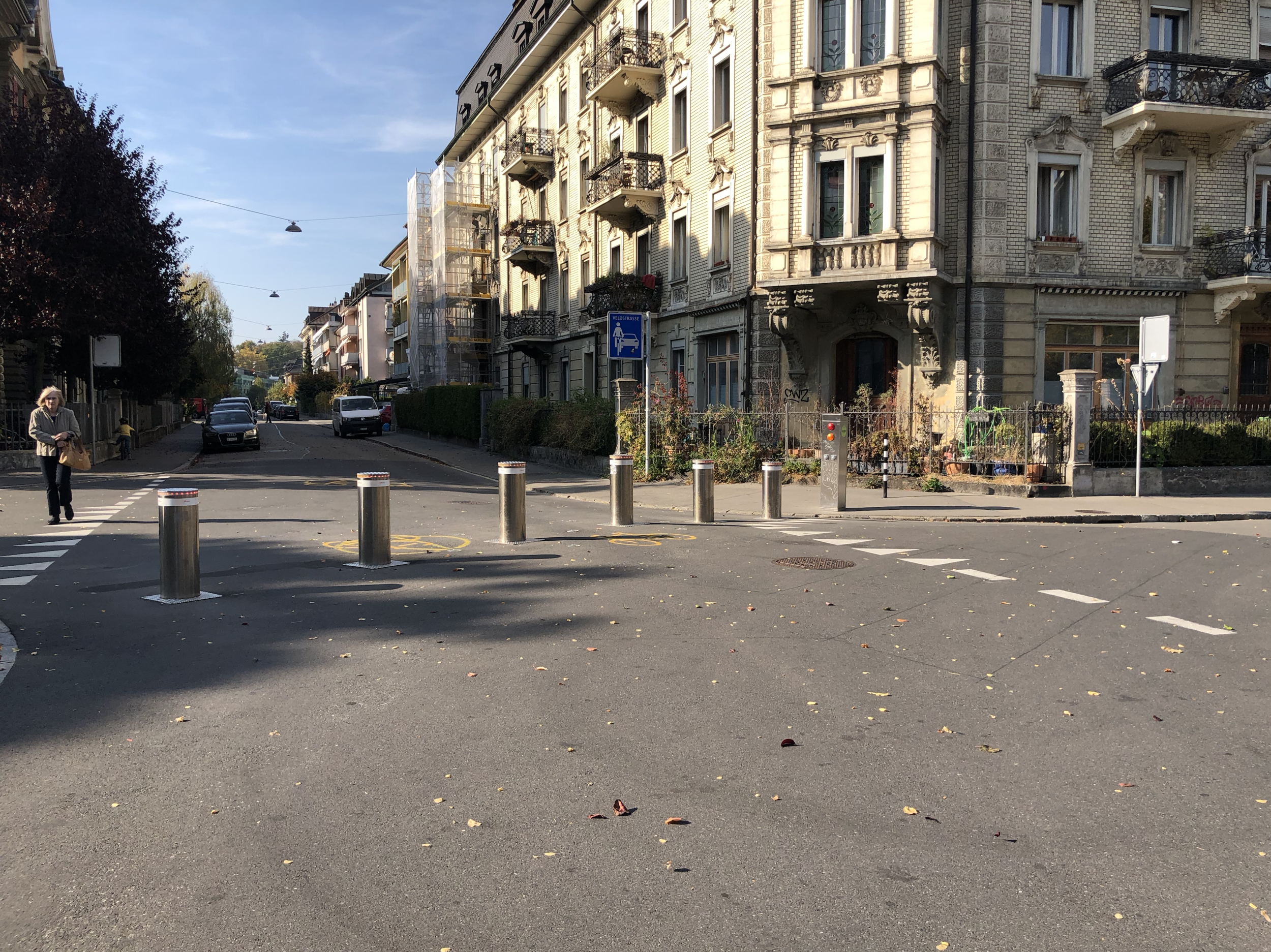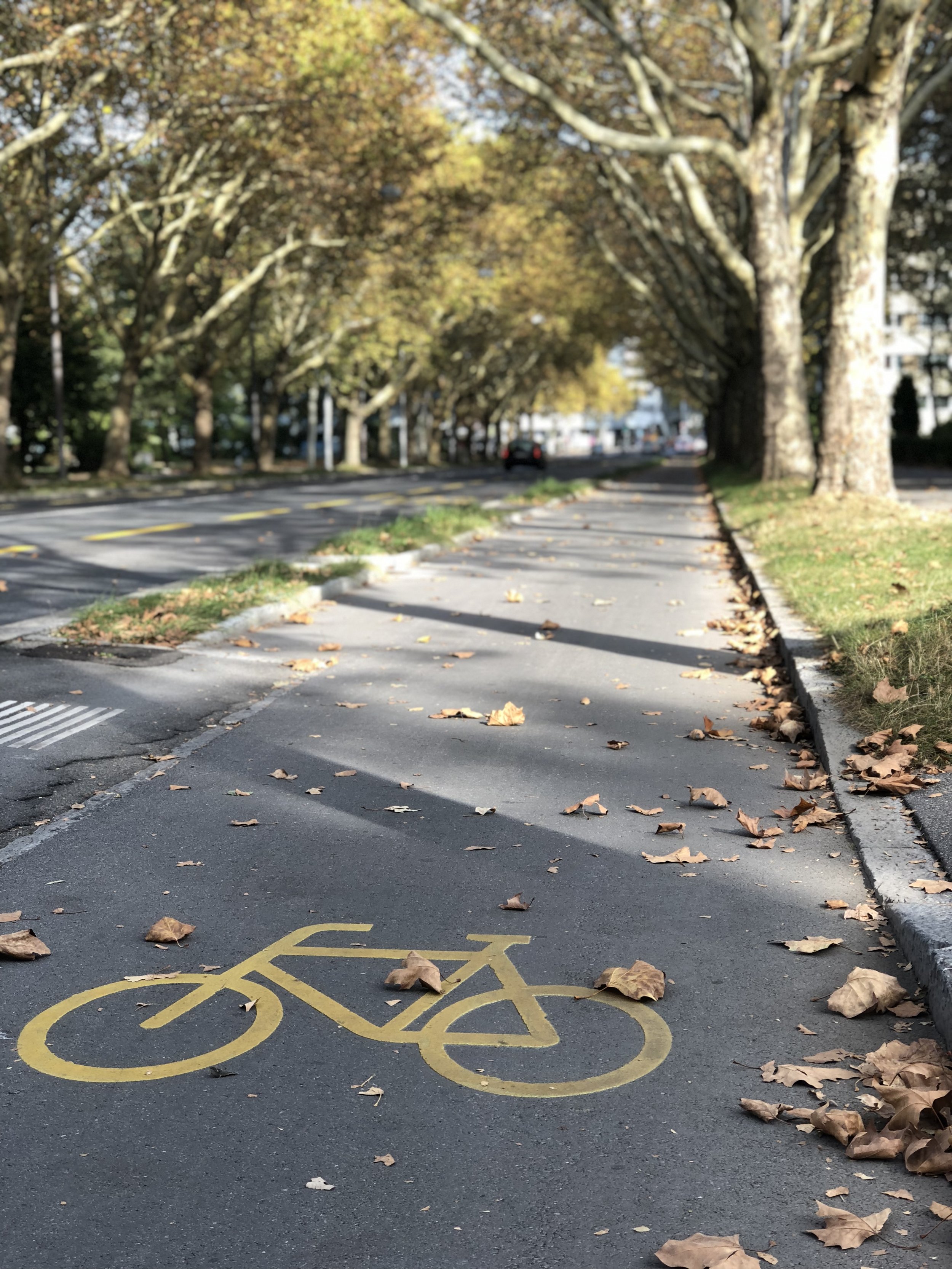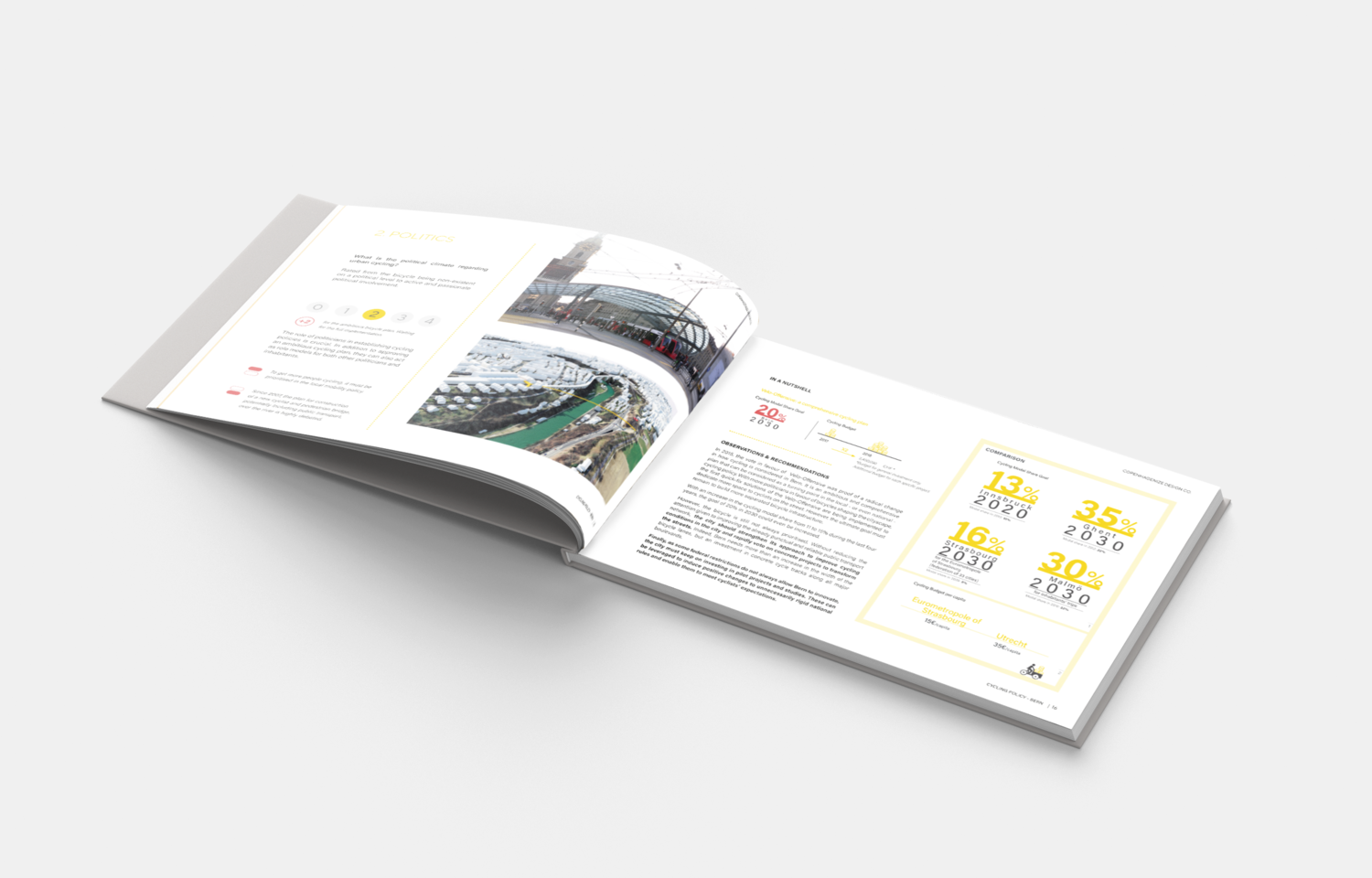Bern has built some quality spaces for bicycle users, even though almost all of its parking facilities have already reached full capacity.
Cities and urban residents routinely ask us, “Why is my city not ranked in the Copenhagenize Index?”
In 2011, we began publishing the Copenhagenize Index, our comprehensive and holistic ranking of bicycle-friendly cities. We evaluate over 100 cities worldwide and publish the top 20 every second year, in order to track global progress in urban cycling. To narrow down the process, and to ensure a high degree of consistency, we only assess cities with populations above 600,000, eliminating those with an extremely low or unreported bicycle modal share. Additionally, we narrow the field through a city selection process relative to country size, so as to not have one or two countries dominate the Index. Taking stock of this methodology, a city like the Swiss capital of Bern does not qualify for our Index due to its small size.
Nevertheless, a few years after the launch of its “Velo-Offensive” plan, the City of Bern wanted an evaluation of its recent cycling policy updates, and contacted our French office to see how it would score relative to other bicycle-friendly cities. Upon request, our team began an assessment following the same methodology executed in the Copenhagenize Index, diving even deeper into this particular case. The process included an analysis of all local documentation related to cycling, local street audits in the Swiss capital, and a benchmarking exercise — weighing the state of cycling in Bern against 10 other comparable European cities.
The outcome of this study was eye-opening for both our team and local officials. Bern has been on a roll in recent years, pursuing ambitious changes to its cycling policy. With a 15% bicycle modal share in 2015, bicycle use is growing in both numbers and diversity, showing that a variety of residents consider the bicycle to be a viable mode of transportation.
Our evaluation allowed the City to take a step back on recent projects with a renewed perspective, strengthened its existing vision for the bicycle, and reinforced the necessity of new ambitious street reorganisation projects. We are excited to see that the City has since kept up its momentum on the bicycling front, beginning construction on wider, segregated cycle tracks that should open later in 2019.
Clotilde, the director of our French office, presented the results of the analysis in March to a crowd of politicians, local experts, and bike enthusiasts in Bern.
Wondering where your city is ranked in relation to the most bicycle-friendly cities in the world? Want a better understanding of your city’s cycling strengths and weaknesses? Don't hesitate to contact us!
We are excited to announce that the 2019 edition of the Copenhagenize Index will go live on June 27 at 1 p.m. (GMT+1). Stay tuned!





